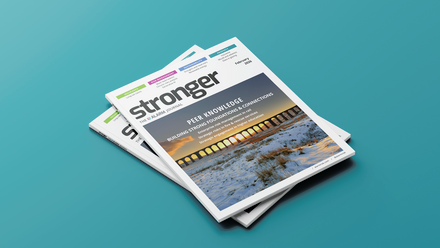Rising claims costs, lack of detailed risk information, the difficulties managing leased blocks of flats, and tenant behaviour has made the insurance market for residential leasehold property incredibly challenging.
While the difficulties in this market have resulted in government and regulator intervention - especially around fire prevention - councils and housing associations should take action to improve their chances of securing cover.
Why is the market challenging?
Insurers have seen claims costs increase significantly in the residential leasehold property market. Supply chain issues, labour shortages and inflation-beating increases in the price of materials mean repair costs have risen dramatically, with long lead times to source materials. On top of that, alternative accommodation costs have increased due to shortages in the rental housing market.
Claims volumes have also increased over the last few years. This is down to a combination of factors, including lack of maintenance; risk management; policyholder behaviour; and the quality of fittings, materials and repairs.
The Grenfell tragedy and issues around fire safety have fed into insurer caution but escape of water claims remain a key concern. A small leak in a one-bedroom flat on the top floor of a high-rise block can become a substantial claim.
How is it affecting organisations requiring cover?
With claims costs often far-exceeding premium, appetite to write residential leasehold property insurance has reduced substantially, and several providers have withdrawn from the market in the last 18 months.
There are a handful of carriers listed on public sector insurance frameworks, but many restrict cover, require higher excesses, or only offer cover to existing policyholders or those insuring other covers with them. Subsequently some organisations have one or even no quotations when they go to tender or market. Where a quotation is offered, higher premiums are the norm, sometimes with increases of more than 150%.
Where insurer capacity is withdrawn in the middle of a customer’s long-term agreement, some councils have to make alternative arrangements at short notice. This might be through an emergency tender exercise or other means. It can also leave them facing difficult choices around cover and meeting lease obligations.
This issue affects private sector leaseholders as well as public sector leaseholders - the challenges are market wide.
What action is being taken?
As the lack of capacity in the market is affecting organisations and their tenants, the issue has reached government. Secretary of State for Levelling up, Housing and Communities, Michael Gove, called on the Financial Conduct Authority to review the market. It reported in April 2023, proposing new rights and protections for leaseholders to improve transparency in the market.
Alongside this, the insurance sector is looking at how it can attract more capacity into the market. This will increase competition, which should make it easier to access affordable cover.
There are early signs that some of the heat is coming out of the market. Building cost inflation is beginning to calm down, although, with the Construction Industry Training Board stating an additional 225,000 workers may be required by 2027, there remains a significant skills shortage.
What can organisations do now?
There may be some positive signs ahead, however timescales are unknown. For the time being, organisations should seek to improve their presentation of risk. This will enhance chances of getting cover and mitigate the impact of current market conditions for their leaseholders.
We recommend these steps:
-
Implement a proactive risk management strategy. A robust risk management strategy can significantly reduce losses on a leasehold property. Fitting leak detection systems, fire safety measures and security will help, but organisations should keep on top of maintenance and block management. Lagging or replacing old pipes, for instance, could mean fewer escape of water claims. Organisations should explain these measures to insurers, so underwriters feel confident a risk is well managed.
-
Provide tenants with risk mitigation education. Tenants have an important part to play in reducing claims. No one wants their home flooded or destroyed by fire, so provide tenants with information to help make their properties safer. As an example, as e-bikes and e-scooters become more popular, the London Fire Brigade has seen a rise in battery fires, from eight in 2019 to 116 in 2022. Providing tenants with information on how to safely charge and store these vehicles can help prevent fires.
-
Scrutinise your repair analytics. As well as responding to repairs, it is good practice to analyse data on maintenance and repairs. If there is a series of similar losses in one block, for instance escape of water, does this indicate a bigger problem such as failing plumbing? Spotting trends and the early warning signs of bigger issues can save money and improve the risk. Again, providing an overview to insurers to help them understand the risk.
-
Give your insurer quality data. Insurers want as much information as possible about any risk, especially when they’re cautious about offering cover. Good data gives them a more detailed picture of the risk and can improve your chances of securing better terms. Insurers may have been more relaxed about data prior to the current disciplined market, but times have changed. Now they may want to know about mixed commercial/residential blocks; strategies for dealing with unoccupied properties; construction information; and details of cladding, as well as risk management details.
-
Consider your cover options. In response to the current crisis, some organisations now insure their leasehold property on different basis. This can include a commercial property policy structure with a large excess and taking out excess deductible infill alongside. This can work but do check the contractual requirements and lease obligations to ensure it mirrors leasehold commitments.
-
Take professional advice – it is essential in this challenging market. A specialist insurance broker can help organisations implement risk management initiatives and present the risk to insurers in the best possible way. And, as the market starts to evolve and new solutions become available, they will make sure you take advantage of any changes.



